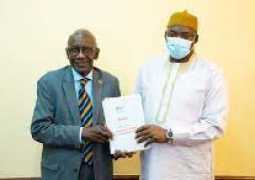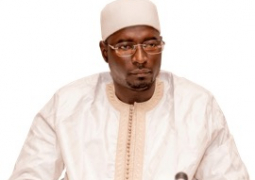The UNICEF U-Report further indicated that 34.50% of the 10, 000 people registered believed to know the signs and symptoms of covid-19.
This revelation was made known on Wednesday by UNICEF U-Report SMS Social Monitoring Poll.
The UNICEF U-Report is a free SMS social monitoring tool for community participation, designed to address issues that the youth cares about. The UNICEF U-Report Poll includes health, education, youth unemployment, disease outbreaks and anything else people want to discuss.
The survey also revealed that 92.74% of people said they have heard about the coronavirus pandemic, while 7.26%have not heard about the pandemic.
According to the report, 47.05% of people prefer to get their source of information about coronavirus on TV, while 24.94% prefers it from health workers and 12.93% from radio.
The report from UNICEF also indicated that 68.36% of those who registered for the survey did not know about Ministry of Health’s 1025 hotline number, while 31.64% said they know about the hotline number.



